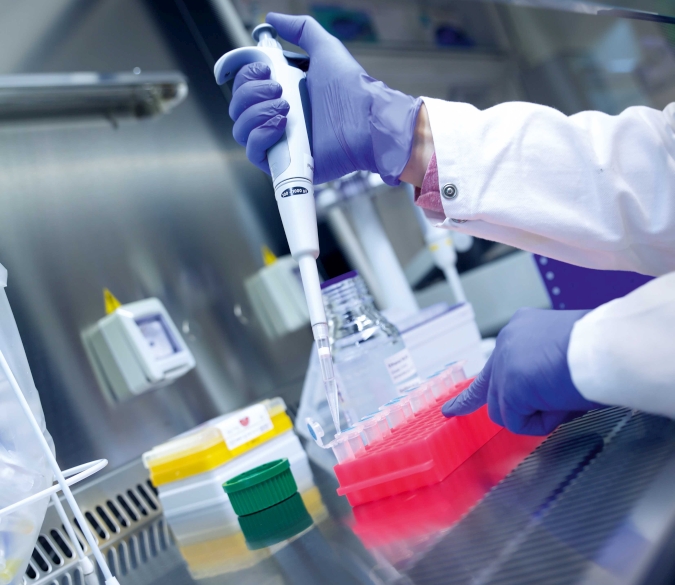In the vast landscape of the biological sciences, students often grapple with a pivotal decision: Should I major in Biology, Biotech, or Biochemistry? Each of these disciplines possesses its unique allure and academic rigor, but understanding their distinct pathways can illuminate the road ahead. This discourse will navigate through the idiosyncrasies of each field, incorporating not only academic tenets but also the underlying motivations and fascinations that may draw a student closer to one discipline over another.
The foundational concern arises from the burgeoning field of Biotechnology, which has surged in popularity. Biotechnology is the confluence of biology and technology, utilizing biological systems or living organisms to develop products or processes. What captivates many is the promise of tangible impact on global challenges such as medicine, agriculture, and environmental sustainability. This interdisciplinary approach harnesses both biological knowledge and engineering skills—a thrilling synergy that beckons those with an innovative mindset.
Contrastingly, the study of Biology offers a broader lens, encompassing everything from cellular mechanisms to ecological systems. It serves as the cornerstone upon which specific disciplines, including Biochemistry and Biotech, are built. An undergraduate curriculum in Biology often includes diverse courses that explore genetics, marine biology, and microbiology, providing an expansive view of life sciences. This wide-reaching foundation enables students to develop critical analytical and problem-solving skills, fertile ground for those who wish to traverse multiple paths in science before specializing.
As students ponder their choice, it is essential to delve into Biochemistry: the study of the chemical processes within and related to living organisms. Biochemistry can be seen as the molecular language of life, where complex biochemical interactions are unraveled to elucidate the principles governing cell function. One is often drawn to this discipline out of a fascination for molecular dynamics, cellular communication, and the intricate web of metabolic pathways. This meticulous exploration of molecular composition and structure not only fosters a comprehensive understanding of biological systems but also positions graduates favorably for advanced research and healthcare careers.
However, the academic differences extend beyond mere subject matter. Laboratory experiences—and the nature of these experiences—can significantly influence one’s decision. In a typical Biology program, lab work may involve organismal studies, fieldwork, or ecological assessments. The emphasis is often on direct observation and experimentation with living systems. Conversely, Biochemistry and Biotechnology typically involve intricate laboratory techniques such as chromatography, spectroscopy, and molecular cloning. These practices demand a heightened attention to detail and an affinity for hands-on research, reflecting the meticulous nature of the microscopic world.
While making a decision, one must also consider career trajectories. Graduates from a Biology program often find themselves in diverse roles such as educators, wildlife biologists, or public health analysts, where they can apply their comprehensive knowledge to real-world problems. Biotechnology graduates frequently enter industries that focus on product development, regulatory affairs, or quality assurance, propelled by the historical momentum of technological advancements in science. In contrast, those who pursue Biochemistry may gravitate towards research and development positions, clinical research, or pharmaceutical sales, thriving in environments that demand a robust grasp of both biology and chemistry.
The choice of major also correlates with personal proclivities and future aspirations. A student intrigued by the flourishing fields of genetic engineering or personalized medicine might resonate more with Biotechnology, while someone captivated by the elegance of molecular interactions may find their niche in Biochemistry. Alternatively, a broad interest in ecological dynamics, evolutionary theory, or organismal biology could steer one towards a general Biology major. Ultimately, understanding the driving passion behind one’s interest can illuminate the optimal path forward.
Additionally, academic rigors differ across these disciplines. Biology is often regarded as a more introductory discipline, easing students into complex biological concepts. In contrast, Biochemistry and Biotechnology require a more rigorous understanding of mathematical principles and chemical interactions, thereby attracting students with a penchant for analytical thinking and scientific inquiry. Those who thrive in calculus or organic chemistry may be particularly well-suited for the challenges posed within these domains.
A critical aspect to consider is the evolving nature of these fields within the broader scientific community. Financial investment and job market demand for biotechnological innovations are escalating, attracting substantial funding and fostering research opportunities. This increases prospects for those choosing Biotechnology as a career path. Furthermore, the integration of AI and machine learning into biological research aligns modern advances with traditional studies, suggesting that Biotechnology will continue to flourish in innovative ways.
In contrast, the fundamentals of Biology will always remain essential. A robust understanding of ecological principles, evolutionary patterns, and organismal interactions cannot be overstated in the ongoing quest for sustainable living and ecological balance. Similarly, the principles of Biochemistry will always serve as the backbone upon which advanced genomic and proteomic studies build, cementing its relevance in the realm of biomedical research.
In conclusion, the decision to major in Biology, Biochemistry, or Biotechnology hinges not only on academic interests but also on the profound motivations that compel one towards these fields. Each discipline offers a unique vantage point into the complexities of life, enriched by its distinct methodologies, career prospects, and academic challenges. As you navigate this pivotal decision, consider not just the course titles on the syllabus, but the profound connections and career aspirations that resonate with you on a personal level. Ultimately, the path chosen should harmonize your intellectual curiosities with your ambitions, paving the way for a fulfilling and impactful career in the biological sciences.








